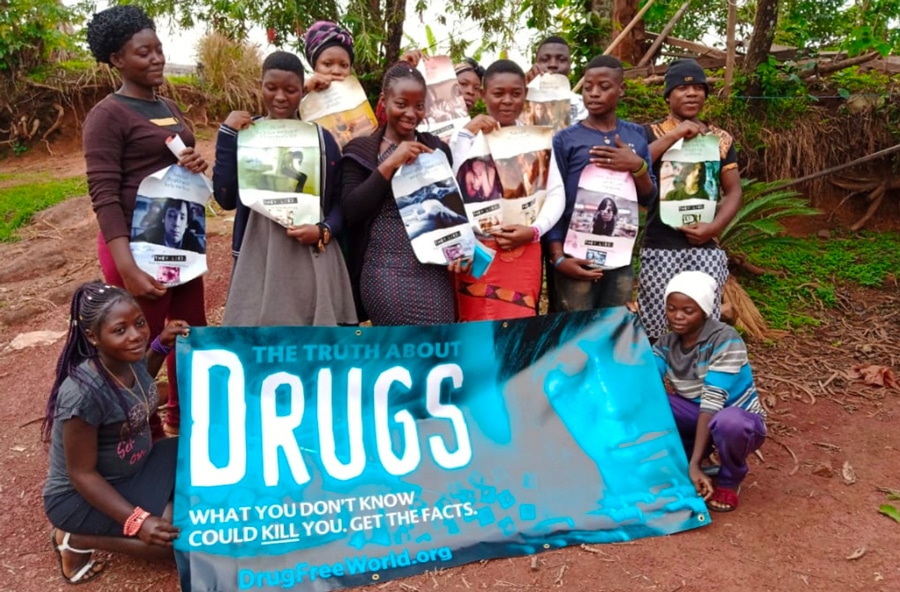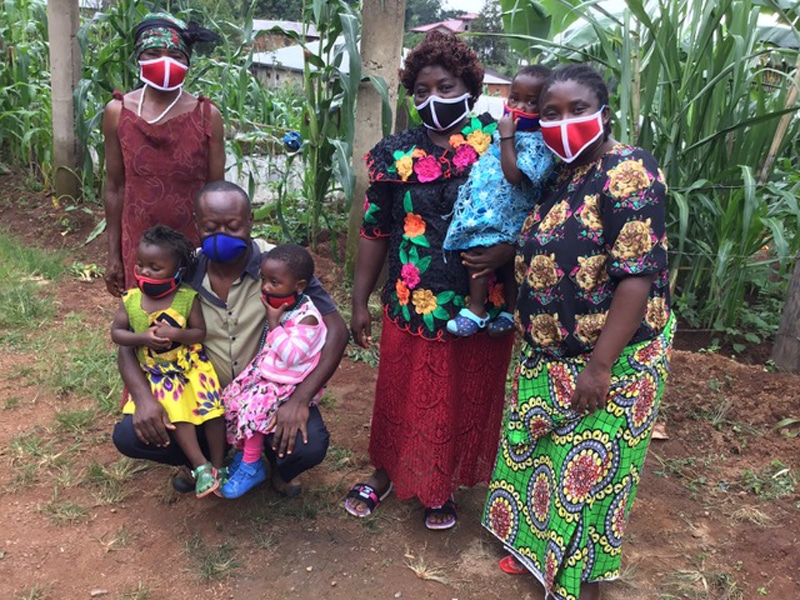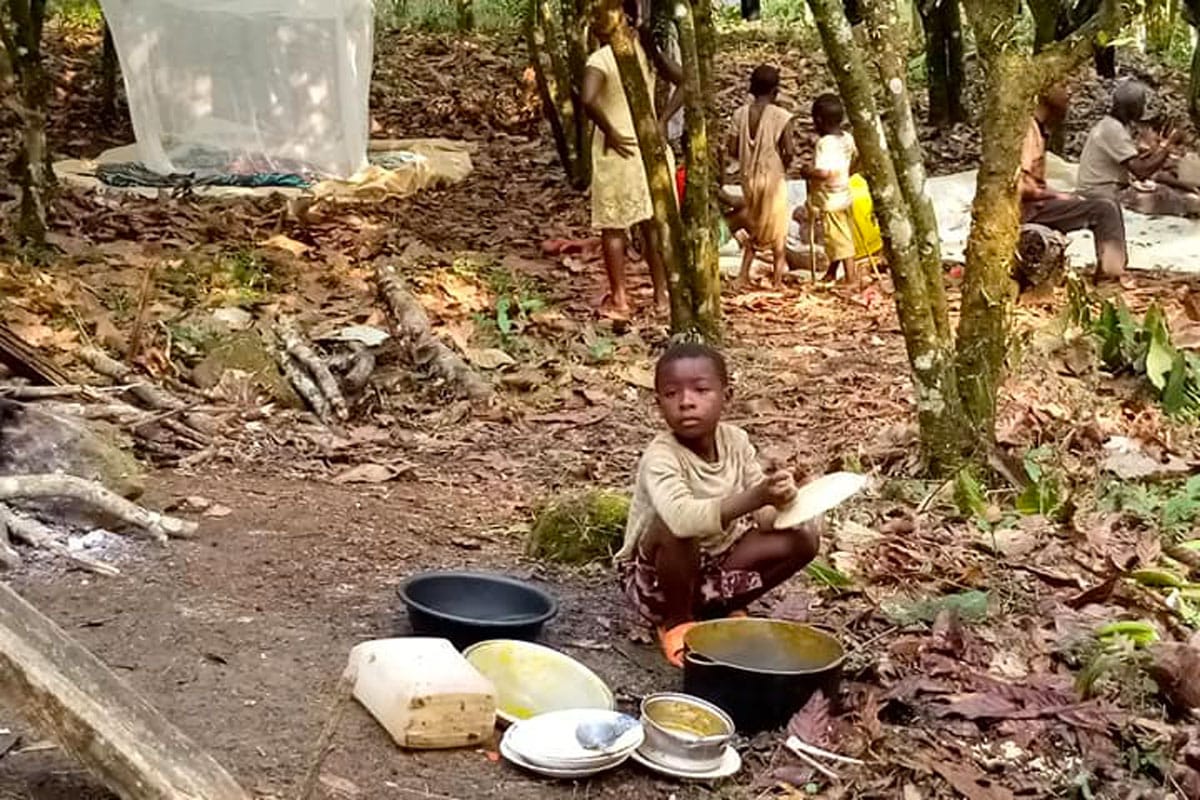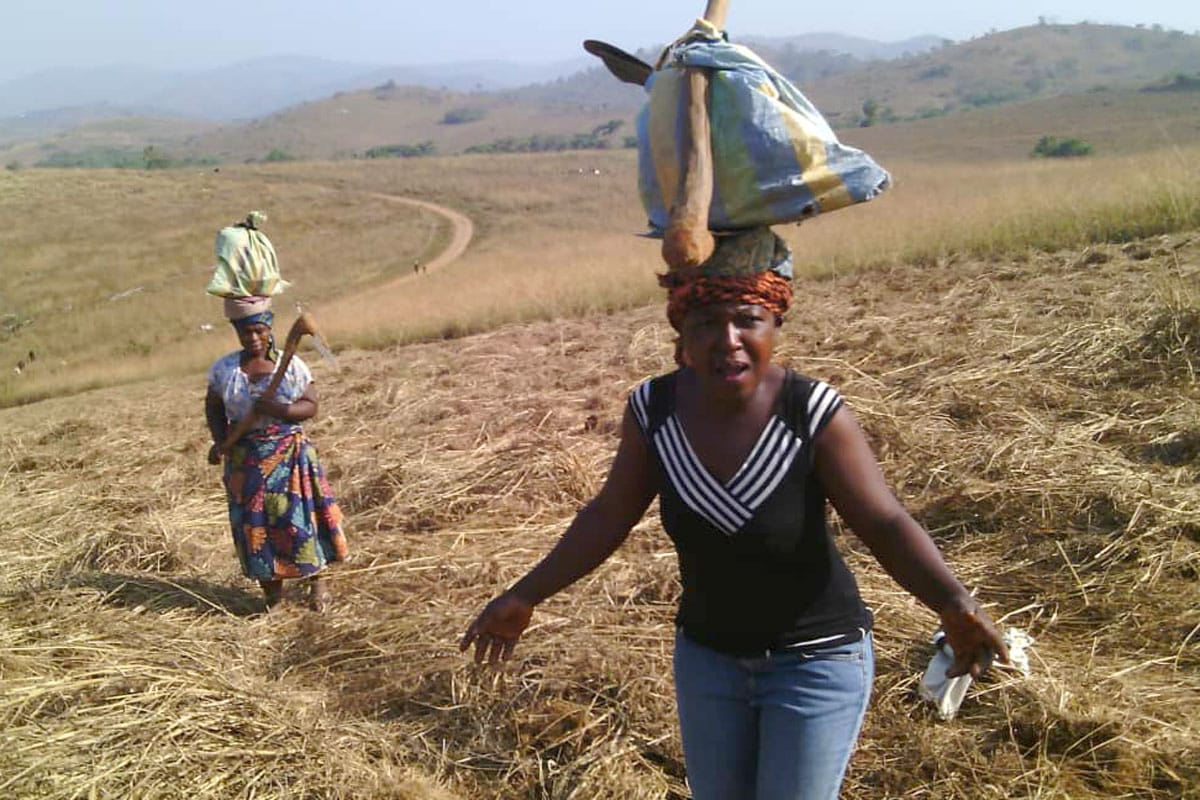Global Fellows from Cameroon and the UK on a mission to help youth plan their future
By Mathias Ngong Njoya, Global Fellow from Cameroon
Personally, I have been unsuccessful in achieving new years’ resolutions! I also came to realize that many other young professionals are faced with a similar issue. So, I decided to come up with a biannual workshop that would help train and guide youth on professional development planning. We call it the Blueprint Workshop.

I teamed up with Dr. Gopal from the UK (a peer who I met during the 2021 Goldin Fellows Program) to join hands with my remote team members from Nigeria and Ghana in launching the biannual blueprint workshop. This two-day workshop took place from Jan 29 to 30th 2022 and brought together 30 youth from 15 countries in Africa and Asia. The second workshop of the year will be taking place in July 2022. The key objective for this first workshop was to invite young professionals to start the New Year with a clear set of achievable goals and provide them with goal-setting skills.
We had six speakers providing coaching on a range of topics such as the SWOT analysis (Strength, weakness, opportunities, and threats), effective goal setting, growth mindset, time management, overcoming procrastination, and development planning. We also shared templates that ga ve guidance to participants in implementing milestones which are key to achieving their goals. We have planned to pair all participants with accountability partners who will check in with them periodically. We are going to meet again with all the participants in the middle of the year to assess their progress together and offer additional support where required.
Participants shared positive feedback at the end of this two-day workshop with some requesting for the Blueprint workshop to be held quarterly so that they can track, learn and course-correct their plans in more regular periods.
"I used to think that SWOT is a tool only used by companies to devise strategies and assess markets. Through the workshop, I learned how to utilize SWOT for my own personal planning and strength assessment."
We hope to make the blueprint workshop available to more youth. It is useful to help them analyze factors outside their control while making plans. And tools such as time management can really help everyone become productive rather than simply being active. If you do not know how to prioritize, you will often not be productive.
Reflecting on the success of the workshop, I think it is crucial that I explore ways to partner with more Goldin Institute Fellows. Working with Dr. Gopal was great, and I now feel like I know him way better because we spent time planning and working together for the success of this workshop.
Thank You and Update from Cameroon

Dear friends and supporters,
Thank you to everyone from the global network that supported our efforts in Cameroon. As you may have seen on the news, the COVID-19 cases are rising in in Cameroon and our communities are doing our best to gear up to stay safe. Unfortunately, Cameroon is second only to South Africa in the number of COVID-19 cases. But thanks to your generosity, we have been able to purchase masks for young people, orphans and widows in two communities near Bamenda that were unprepared for the pandemic.

Unfortunately, the COVID-19 makes the other issues plaguing our community even harder to address. As I reported in my last update, the deadly clashes which have mostly been in the rural areas have led farmers to abandon their farms.

This have led to severe food shortages because local food sources are no longer available and global food chains are also disrupted because of the conflict. However, with you support, we were able to purchase fertilizers to restart the farming and purchase emergency foodstuffs for the internally displaced during this crisis.

Many problems show up in communities when times are hard. Your support also helped us do some other things that our community needed:
- we assisted a father that needed medical care for his leg
- we gave direct cash assistance to 6 families in crisis, and
- we continue to build self-sustaining and ecologically sound support for communities to help themselves.

On behalf of the community of Bamenda, Cameroon, thank you for your generosity and solidarity!
Sincerely,
Alexander Gwanvalla
GATHER Global Fellow and President, Community Green Engagement Cameroon
Caught between Two Wars

Over the past four years, I have painfully witnessed my country of Cameroon be ravaged by a steadily escalating war which has displaced thousands of civilians internally, and into neighboring countries. As the president of Community Green Engagement (COMGREEN), I and my colleagues have strived to ensure the communities which we serve not only have sustainable access to food, but also engage communities on existential climate change issues.

In the current period, we have been forced to watch, helpless to prevent the entire destruction of villages because of the fighting. Many flee to places such as Bamenda, where Community Green Engagement has its headquarters. run to the major towns like bamenda where we have our headquarters. Unrelenting gunfire and the sincere risk of interpersonal violence by warring groups makes it nearly impossible for us to work.

Further, due to the deadly clashes which have mostly been in the rural areas, farmers and ranchers have abandoned their properties leading to drastic food shortages. Now, the consequences of the COVID-19 pandemic are upon us as well. Though we have few confirmed cases of virus infection, like too many countries throughout Africa and around the world we struggle with rigorous medical testing for the disease. Additionally, the police and military are seizing the opportunity offered by the pandemic to further restrict civilian movement by enacting curfews, and deep fines for those who are outside of their home without official permission, or subjectively valid reasons. Some have been beaten for these reasons as well.
With the support of the Goldin Institute. Community Green Engagement is launching a FaceBook fundraising drive to secure foodstuffs and livestock for Bamenda and the surrounding areas we serve.

It is a very difficult time for us here in Cameroon, but Community Green Engagement continues to offer resources, training and hope. Before the fighting in Cameroon, between Anglophone and Francophone factions, COMGREEN maintained a beekeeping project, gardening, and oversaw the construction of a community center through regular civilian-focused consultations, Many stakeholders came together to discuss our most pressing problems and collectively come up with solutions. We pray the time will come again soon when we can resume such inspiring outcomes, again.
Click Here to Support the Community in Cameroon
GATHER Alum Supports Community Amidst Conflict in Cameroon
By Jimmie Briggs, Director of Learnign
In the last two weeks alone, more than 8,000 Cameroonian refugees have streamed across the border into neighboring Nigeria, fleeing an increasingly high intensity conflict between the national government and English-speaking militias seeking to form a breakaway state called “Ambazonia.” For Global GATHER alumnus Alexander Gwanvalla, the deteriorating situation has placed ever greater burdens on the work of his organization, Community Green Engagement. Speaking by phone last weekend from northwest Cameroon where he lives and works, Alexander described a crisis situation with food and resources rapidly dwindling.

“Farming activities are mostly carried out in rural areas and due to the deadly clashes happening now between soldiers and militias, farmers have fled and abandoned their farms,” he explained.
“This has resulted in dire food shortages because the food sources are no longer available. There is a state of insecurity, some of our members are also fleeing the country, and we are also facing ‘lockdown’ days where we cannot leave our homes and go to work because of the danger.” -- Alexander Gwanvalla
In total, 60,000 Cameroonian refugees have left the country for Nigeria, and even to the United States.

In practical terms, constant gunfire and risk of other physical violence by one of the warring groups makes it next to impossible for Alexander and his colleagues to meet with community decision-makers and thought-leaders. During last week’s elections on February 9, separatists from the English-speaking part of the country imposed a six-day lockdown on all civilian movement and reiterated their demand that English-speaking senators and parliamentarians quit the national senate and parliament. They’ve consistently threatened the lives of individuals who engage the legislative bodies in any way.

Last December, Cameroon’s parliament granted special status to the northwest and southwest regions of the country, which are predominantly English-speaking. Despite those concessions toward autonomy, the militias have pushed back for years against perceived disenfranchisement by the country’s French-speaking majority. The struggle for independence by the insurgents has been the biggest challenge for President Paul Biya, in power for four decades, even as the country faces off against Boko Haram terrorists who’ve long ravaged the Lake Chad Basin.
Though his work with Citizens Climate Lobby has been dramatically hampered since 2017, Alexander and his community allies continue to create impact in their region, in spite of the existential challenges.
“We have continued to focus on building our community assets via consultation and this approach has been welcomed,” Alexander said.
“We usually carry out our activities during days that are calm and mostly in areas not really hit by the crisis. Normally, we take all precautions before going out. So far, we have planted trees, installed beehives, and hosted radio programs on the rights of the child at a local radio station.” -- Alexander Gwanvalla
The conscription of child soldiers by militia poses a threat to a community’s youth.
“Food, food is a biggest challenge now,” he continued, “being able to access it as the fighting goes.”
Building On Our Assets Workshop with the Nsongwa Community in Cameroon

Dear Friends and Supporters:
I hope this missive meets you well.
Just to inform you that we met with the community leaders of Nsongwa Mile 90 recently. This community is amongst the four noted with high recruits of child combatants and separatist fighters. Also, the land is not fertile.

After the meeting, the community leaders promised to rally and mobilize community members for a workshop which will be facilitated by us called “Building on Community Assets” on a date to be scheduled by them.
We would be training them on beekeeping, tree and flower planting. We also located an asset in the community - a community member who has been carrying out some activities worth building on.

He termed his startup “Many Colors,” is planting flowers, and is into eco-house decoration as well.
We advised him to think of a botanical garden which will serve as a relaxation park and a site for sports, among other activities. We will be working with him to come forth with a botanical garden in the community.
We also used this opportunity to talk about Global Network for Religion of Children (GNRC).
I will update you on the upcoming workshop.
Thanks,
Alex



